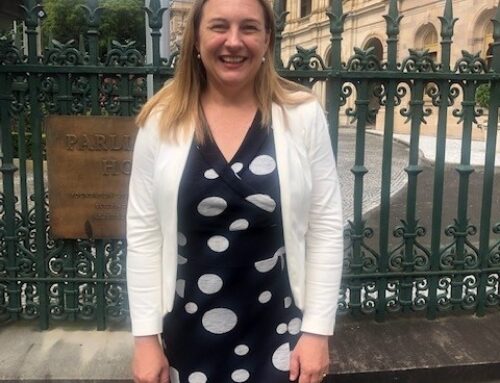I have really had to think long and hard about this blog post in case it could be misinterpreted.
Open communication between lawyers and clients is critical. There is no such thing as a silly question and, indeed, many a disaster has been averted by clients asking questions that they thought might make them look silly but opened up critical lines of inquiry. In no way do I want to discourage clients from contacting their lawyer whenever they are unsure about something or want an update on the process.

However, recent discussions with colleagues who practice in various areas of law has reinforced my experience that clients would benefit from knowing how to get the most from their lawyer. With that in mind, I will make some general suggestions that will help clients make the most of the relationship with their lawyer and to understand why lawyers behave in particular ways that may seem unusual.
- Although your lawyer must act in your best interest, their primary obligation is to the Court.
Your lawyer will ask you to provide them with documents and information that may appear to be unhelpful to your case. However, if those documents and the information is relevant to your claim then they often need to be provided. The extent of the disclosure required will depend on the nature of the claim – the lowest obligation is on criminal defence lawyers – but none of us can mislead the court or obstruct the course of justice.
If you fail to provide the documents and the information required by your lawyer, it will only delay your claim. Your lawyer will not breach this duty to the Court. It may also lead the other side to believe you are being dishonest even if you are only feeling anxious or protective.
It is also difficult for you to identify what information and documents will be helpful to your claim. Sometimes clients are reticent to tell me when they have returned to work (a critical piece of information in personal injuries cases which must be provided to the other side). Not only must this information be passed on, an injured person returning to work has demonstrated a preparedness to minimise their loss which will actually help their claim.
2. Lawyers’ time is money
All areas of law are different and all lawyers have different costs structures.
We operate on a fixed fee model. Other lawyers operate on an hourly rate. Irrespective of the cost structure, the amount of time that a task takes must necessarily impact on the costs you will pay in one way or another.
Complex legal cases will take a long time for your lawyer to prepare no matter how much you assist them. Sometimes there is little if anything you can do to reduce the amount of work your lawyer needs to do and any attempt to DIY may actually lead to your lawyer needing to do more work.
However, responding promptly to your lawyer’s request for instructions or documents will always reduce the amount of time they will need to spend on your claim and thus the ultimate cost to you. Sometimes the reduction in time and fees will be substantial. If your lawyer needs to make an Application to the Court because of a delay in obtaining your instructions, the additional costs may exceed the costs you would have paid for the entire claim otherwise.
3. Lawyers do not make the laws
Following on from point 2, a lot of time is wasted when clients seek to challenge the fairness of the law. We may agree with you and sympathise with the effect that the law has on your circumstances, however we are not Judges or parliamentarians so we cannot change the law.
If you feel strongly that the effect of the law is unjust, your local member of Parliament is a better choice to vent.
4. Providing documents electronically will often save money
Many clients have adopted the digital revolution but some have not. If you are not confident with providing documents electronically, public libraries appear to be assisting some of our clients with managing their emails or accessing their mygov account.
5. Trust is critical
However experienced and recommended your lawyer is, if you feel any level of distrust, you are better off seeking alternative representation at the outset. If you do not trust your lawyer you will find it more difficult to make decisions about the choices your lawyer presents to you.
Once you have engaged your lawyer, it is entirely reasonable for you to question the basis of their advice and to ask for further clarification when necessary. If you are not satisfied with the advice, it is also reasonable to seek a second opinion. You do not owe your lawyer any explanation for seeking a second opinion. Changing lawyers is costly but lacking trust in the advice you are getting may be more costly in the long term.
6. Lawyers are not Social Workers
Contrary to popular belief, most lawyers I know are empathetic and have a higher than average emotional intelligence. If I do say so myself, this is particularly so with those of us who have chosen the personal areas of law like personal injuries litigation, family law, estate litigation and criminal defence. This empathy is only because we are human – we receive no training in law school to allow us to manage mental health issues.
Lawyers regularly see people at their most vulnerable. We understand that discussing the worst day of your life will be distressing and is likely to prompt tears and other emotional responses. You do not have any obligation to hide your emotions from your lawyer. However, if you have serious mental health issues, it is critical that you obtain support from a professional with the proper qualifications to assist you. Your lawyer will be able to offer empathy but not treatment.
7. Avoid Advice from Non-Lawyers
While it is reasonable for you to want a second opinion if you are unhappy with the advice you receive from your lawyer, make sure you seek that second opinion from another lawyer.
Unfortunately, many people believe that the law is a matter of general knowledge and it is not. Just as we do not recommend you take medical advice from your lawyer, we do not recommend you get legal advice from your doctor, Google, your neighbour or someone in a Facebook group.
Like every other professional relationship, you will get the best result possible when you work with your lawyer, respond promptly, communicate regularly and recognise the expertise necessary to assist you in making difficult decisions about your legal challenges.


![Medical Records and Claims for Personal Injuries – Maher v Russell [2022] ACTSC 297](https://karelawyers.com.au/wp-content/uploads/2023/02/files.jpg)



